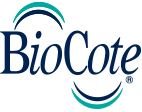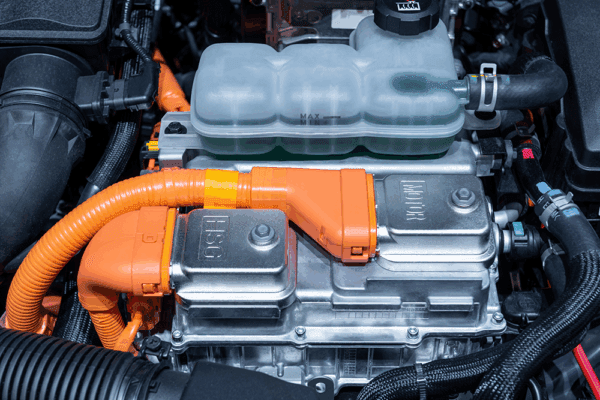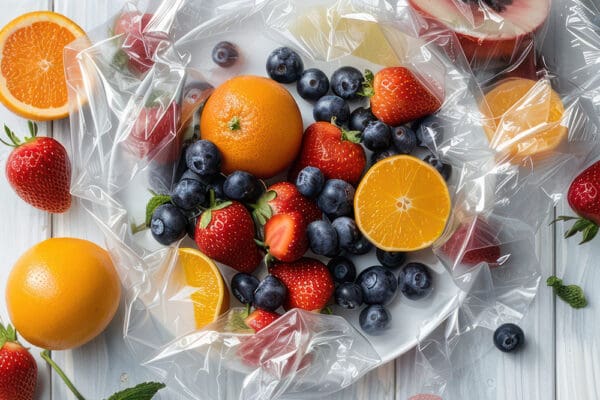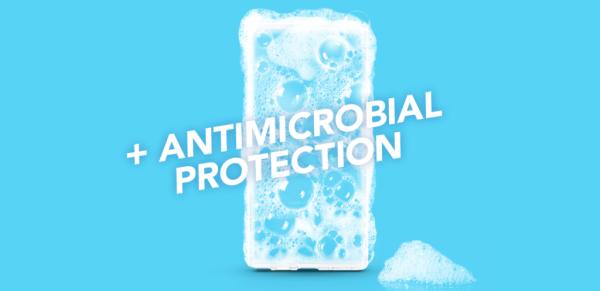
BioCote® Discusses Growth of Antimicrobial Plastics in End-Use Industries
BioCote® prides itself on the quality and efficacy of its antimicrobial additives. David Hall, Managing Director at BioCote®, discusses novel applications for antimicrobial technology as well as methods to prove the quality and performance of antimicrobial additives.
Adding performance and cleanliness to polymers
With consumers being more aware of the negative impacts that microbes can have on the quality, performance and cleanliness of a polymer material since the COVID-19 pandemic, the demand for antimicrobial plastic products has continued to rise. This is also reflected in a recent report from MarketsandMarkets, suggesting the antimicrobial plastics market will reach US$ 66.7 billion by 2026, with commodity plastics being the largest type segment and with medical and healthcare being the largest application segment of the antimicrobial plastics market. According to the report, the increasing trend of antimicrobial plastics usage is expected to also register positive growth in other end-use industries such as building and construction, automotive, consumer goods, and packaging.
A product made from antimicrobial plastic will be permanently protected against the growth of a wide range of microbes, including bacteria, mould and some viruses. The antimicrobial technology acts in minutes and can reduce the number of microbes on a protected plastic surface by up to 86% in just 15 minutes and by up to 99.99% in 24 hours. Once integrated into the material, the antimicrobial protection of plastic parts helps products stay clean and fresh, preventing potentially irremovable staining and the likelihood of odour formation. It will reduce microbial-induced material degradation, protect performance properties and make products more durable.
Formulated into concentrated powder or masterbatch pellets to suit the manufacturers’ moulding or extrusion process, the antimicrobial additives supplied can be easily cost-effectively integrated into any polymer material and polymer blend during manufacturing without affecting the colour or mechanical properties of the material. The comprehensive portfolio of antimicrobial additives supplied by BioCote® is suitable for a wide range of engineering plastics (such as PC/ABS blends, Nylon PA 6, PA 66, PBT, PC, PMMA, POM, TPU) and commodity polymers (including ABS, PS, HDPE/LDPE, PP, PVC etc.). Furthermore, the company can develop further polymer-specific masterbatches to suit their customers’ requirements.
Applying antimicrobial features to prominent touchpoints
BioCote® Managing Director, David Hall, notes that the company is working with a range of new partners on novel applications for antimicrobial plastics, with public transportation as one growing area.
BioCote® is also involved in the UK’s AMICABLE project, funded by an Innovate UK Smart Grant scheme, where a team of manufacturers and researchers from Warwick Manufacturing Group (WMG) at the University of Warwick are working to produce innovative lightweight composite grab poles with embedded antimicrobial properties.

David explained: “The grab poles will be used in a wide range of public transport applications, such as bus, rail, underground and tram, including in the new prototype vehicles of the Coventry Light Rail system. The poles themselves will be suitable for retrofit, which means they can be installed into new vehicles, and they can also replace existing steel poles in buses and the underground.
“Whilst the project initially focuses on public transport applications for improved cleanliness and additional product protection, there is the potential for the materials to be used on cruise ships, medical furniture or wherever there is a chance of odour, staining or material degrading microbes causing issues for products.”
The company is also working with automotive OEMs and their supply chain to develop antimicrobial-containing interior trim and HVAC components.
Another application for antimicrobial technology that has gained popularity in recent times is mobile phone cases. Mobile phones have become an essential part of our day-to-day lives, becoming vessels for communication, entertainment, learning, and more. It is estimated that 95% of adults in the UK have access to a mobile phone. Since we carry our mobile phones with us wherever we go, they do come into contact with handbags, trousers and jacket pockets and surfaces we place our phones on. Not many of us remember to clean our phones regularly, so introducing antimicrobial technology into the material of phone cases adds another layer of protection, further supporting regular hand washing and the use of hand sanitisers.
David Hall added: “We are proud to have teamed up with one of Britain’s fastest-growing tech companies, Tech21, on the development of the antimicrobial Evo Check phone case range.
“BioCote® antimicrobial technology is integrated throughout the case material at the point of manufacture, ensuring Evo Check cases are protected for their entire product lifetime from bacteria that can cause staining, odours and material degradation. Their latest addition is the Apple 13 iPhone case, merging style with ultimate device protection.”
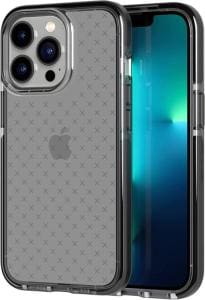
Methods to prove quality and performance of antimicrobial additives
BioCote® prides itself on the quality and efficacy of its antimicrobial additives, which clients around the globe have come to rely on when associating their brand with the BioCote® trademark. To ensure the antimicrobial additives supplied by BioCote® meet those high expectations at all times, the company applies stringent quality control parameters and test protocols prior to shipping. Stringent quality control checks of the additive’s particle size, moisture content, visual appearance and active substance concentration are carried out to ensure that only additives that pass all criteria will be sent to customers to integrate into their products, delivering optimum antimicrobial protection.
Once integrated into materials, BioCote® also carries out validation testing before the protected client products go to market to ensure they deliver the required levels of antimicrobial performance associated with the BioCote® trademark. Working with an impartial testing partner, BioCote® commissions antimicrobial testing on behalf of their clients to measure the level of performance an antimicrobial product exhibits. The testing quantifies the ability of a product to reduce odour causing, staining and material degrading microbes, which guides marketing claims about a product’s performance and backs up existing claims for treated articles. This instils customer confidence by applying traceability and credibility to the antimicrobial product feature.
The most common testing methods applied for antimicrobial efficacy testing are ISO 22196, which quantitatively measures the antimicrobial activity on plastics and other non-porous surfaces and which is based on the Japanese Industrial Standard (JIS) Z 2801, as well as test method ASTM E2149-13a, which determines the antimicrobial activity of antimicrobial agents under dynamic contact conditions.
BioCote® ensures that its clients benefit from additional, free of charge testing services, such as the required preparation of test samples in accordance with ISO22196 even if they are not received as required by the test method. This additional service would include the pre-cutting and when applicable artificial ageing of samples to fully validate the antimicrobial performance of those product samples.
For more information on BioCote® and its antimicrobial technology for commodity and engineering plastics, visit www.biocote.com or contact the team on +44 (0)2477 712 489, or via email.
BioCote®
+44 (0) 2477 712489
Website
Email
